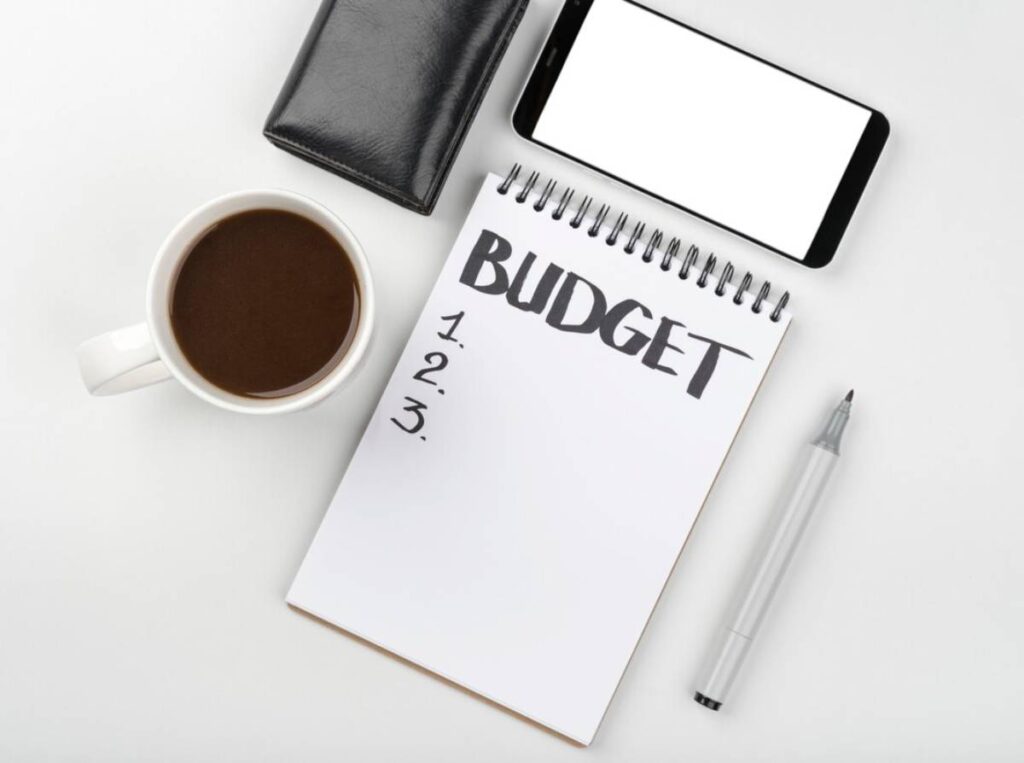The Investing Blog

How to Create a Monthly Budget from Scratch
Crafting a monthly budget isn’t just about counting coins or pinching pennies. Take charge of your finances, find true peace of mind, and build the path to your future goals.
You’re not alone if you often scratch your head at month’s end, wondering where the money disappeared to. Fret not! Creating a practical budget from scratch is easier and more empowering than many believe. Embrace your financial journey and take control!
Welcome to your roadmap for financial freedom! This updated guide reveals the art of crafting a personalised monthly budget. We’ll examine budgeting techniques step-by-step, track every penny, and master financial planning. Get ready to take control of your cash flow!
Understanding the Core: Why Budgeting Matters
Budgeting is not about deprivation — it is about intentional living. It lets you give a purpose to every pound you earn. This way, your resources meet your current needs and help with your future goals.
The Money Advice Service (UK) says that households that track their spending are twice as likely to reach their financial goals as those who don’t.
A working budget provides:
- Greater financial control
- Reduced money-related stress
- Steady progress toward personal financial freedom
Pro Tip: Use budgeting apps that sync with your bank to simplify tracking and get real-time insights.
Important: Always base your budget on your lowest expected monthly income for financial stability.
Quick Guide Summary: Budgeting Steps at a Glance

- List your income
- Identify fixed and variable expenses
- Categorise spending
- Set savings and financial goals
- Create a monthly spending plan
- Track all expenses
- Review and adjust monthly
Step-by-Step Guide: How to Create a Monthly Budget from Scratch
Step 1: Know Your Income
Begin with your total take-home pay (after taxes and deductions), not your gross salary. Include:
- Full-time or part-time wages
- Freelance or side gig income
- Benefits or government support (if applicable)
Calculate your average income from the last 3 to 6 months if it changes each month. To be safe, use the lowest month’s income for your budget.
Step 2: List Your Fixed Expenses
Fixed expenses are regular, predictable monthly costs. These often include:
- Rent or mortgage payments
- Utilities (gas, water, electricity)
- Internet and mobile phone bills
- Insurance premiums (health, car, renters)
Be thorough. Subscriptions like Netflix, Spotify, or gym memberships also qualify as fixed expenses.
Step 3: Identify Variable Expenses
Variable expenses change month to month. These often include:
- Groceries
- Transportation (petrol, bus/train fares)
- Entertainment
- Dining out
- Clothing
- Personal care items
Check a budgeting app or your online bank history. This will help you see your past spending habits.
Step 4: Categorise Your Spending
Organise your expenses into categories such as:
- Housing
- Utilities
- Transportation
- Food
- Entertainment
- Personal spending
- Savings and investments
Precise categorisation makes it easier to analyse and adjust spending later.
Step 5: Set Financial Goals
Beyond covering basic living costs, identify clear financial goals. Short-term goals may include:
- Building an emergency fund
- Saving for a holiday
Long-term goals may include:
- Buying a home
- Retirement savings
- Paying off debt
Every pound you allocate should move you closer to a meaningful objective.
Step 6: Allocate Your Budget
Choose a budgeting method that suits your lifestyle:
- 50/30/20 Rule: Allocate 50% for needs, 30% for wants, and 20% for savings and debt repayment.
- Zero-Based Budgeting: Give every pound a specific job. Make sure nothing is left unallocated.
- Envelope System: Physically (or digitally) allocate money into spending categories to control costs.
Flexibility is key. Start with a simple method and refine it as you gain experience.
Step 7: Track Every Expense
Tracking spending is where fundamental awareness and control develop.
Options include:
- Budgeting apps like Money Dashboard or YNAB
- Simple spreadsheets
- Manual notebooks
The key is consistency. Check in weekly to ensure you are staying on course.
Step 8: Review and Adjust Monthly
Budgets are living documents.
Each month:
- Compare your actual spending against your planned budget
- Adjust your categories as needed
- Celebrate small victories, such as coming under budget in specific categories
Refining your budget monthly helps you stay realistic and motivated.
Best Practices for Smarter Budgeting
Automate What You Can
- Set up automatic transfers to savings accounts
- Set bills to auto-pay to avoid late fees
- Automate pension or investment contributions
Automation reduces the temptation to spend what should be saved.
Prioritise an Emergency Fund

Aim to save three to six months’ worth of essential expenses. This offers a vital safety net for unexpected issues like job loss or medical emergencies.
Stay Flexible
Financial plans should evolve with your lifestyle. A rigid budget is harder to maintain. Adjust your budget when your circumstances change rather than abandoning it entirely.
Common Budgeting Mistakes to Avoid
- Underestimating variable expenses: Meals out, coffee stops, and entertainment costs quickly increase.
- Don’t forget to plan for irregular costs. Include birthdays, holidays, car repairs, and other expenses that don’t recur monthly.
- Budgeting with ideal income: Always set your budget according to your lowest steady income.
- See budgeting as freedom, not punishment: It helps you manage money better, not limit your choices.
Frequently Asked Questions About Budgeting
What if my income is unpredictable?
Base your budget on the lowest income you can expect. You can allocate surplus toward savings or debt repayment when you earn more.
Is the envelope system outdated?
Not at all. Many people find that organising money by category helps control spending. This can be done either physically or digitally. It also makes sticking to budgets easier.
How much should I allocate to fun and entertainment?
Typically, 20% to 30% of your discretionary income is spent on lifestyle. Budgeting is about balance, not deprivation.
Conclusion: Take Control of Your Money Today
Creating a monthly budget from scratch is one of the most potent financial steps. It’s not about being perfect. It’s about being aware, making choices, and moving toward your goals.
Your action steps:
- Calculate your income and expenses today
- Set clear, motivating goals
- Create a simple, realistic monthly budget
- Track your spending consistently
- Review and refine your plan each month
Your money should serve you, not control you. The journey toward financial freedom starts now — one thoughtful choice at a time.









